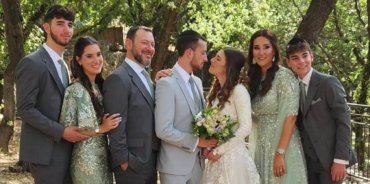
Why is Pesach the Holiday When We Tell Stories?
Dear Jew in the City,
I know that there is a mitzvah to tell the story of our Exodus during Pesach, but why then? Why don’t we have to tell the story of getting the Torah or the story of sitting in succahs? Why is this the holiday we have to tell stories on?
Sincerely,
Hungry
Dear Hungry-
In Shemos Rabbah (2:5), someone asked Rabbi Yehoshua ben Karcha why God first spoke to Moshe from a thorn bush of all things. Rabbi Yehoshua ben Karcha replied, “You know, if God had appeared to Moshe from a sycamore tree, you would have asked me the same question.” He then answered the question but he made a valid point: every time we ask “Why is it A and not B?” we should realize that if things were in fact B, we would still ask about them. Why do we shake four species on Succos and not on Yom Kippur? Why do we blow shofar on Rosh Hashana and not on Shavuos? They’re all equally valid questions.
Before we answer this question, let’s first examine the alternative scenarios you propose. What’s the story of Succos? That God caused the Jews to dwell in huts when they traveled in the wilderness. That’s it. There’s not much to tell.
How about the Shavuos story? There’s a little more meat on the bones there – God told us not to come close to the mountain, then He gave us the Ten Commandments among thunder and shofar blasts – but it’s still pretty sparse. Did you ever see the movie The Ten Commandments? With a name like that, you’d assume it would be the Shavuos story but 90% of that movie is the Exodus – the birth of Moses, the ten plagues, the Red Sea splitting, etc. The part with the Ten Commandments is almost an afterthought.
So now let’s address your question: why is Pesach the storytelling holiday? The Sefer HaChinuch addresses this in his analysis of the mitzvah to retell the story of the Exodus on Seder night. Exodus 13:8 says, “You shall tell your son on that day, ‘It is because of this that God acted for me when I left Egypt.’” Not only do we have to retell the Passover story to others, we must recall it even if we’re all alone as per verse 13:3, “Moses said to the people, ‘Remember this day, on which you left Egypt, the house of slavery….” The reason for this is because the Exodus from Egypt is the seminal event in Jewish history. It was that day that God took the Jewish people out of Egypt to serve only Him.
That’s not to say that the revelation at Sinai isn’t important; it’s obviously hugely important, it’s just not the event that made us a nation. In a previous post, I compare the Torah to our Constitution. As important as the Constitution is, we don’t have a national holiday celebrating its ratification in 1788. Rather, we celebrate the Declaration of Independence in 1776. That’s what made the US a nation. Pesach is the Independence Day of the Jewish people. (Unlike the United States, the Jewish nation does celebrate receiving our corpus of laws, on Shavuos. You will note, however, that the reason we celebrate Shavuos isn’t even explicit in the Torah.)
The seven-week period from Pesach through Shavuos, which we mark by counting the 49 days of sefiras ha’omer, recreates the seven weeks from the Exodus to the revelation at Sinai, so it’s tempting to view Sinai as the culmination of the Exodus. I’m not so sure that this is the case. After Sinai, we had the sin of the Golden Calf, followed by building the Mishkan (Tabernacle), the sin of the spies, wandering in the desert, the manna, the rebellion of Korach, and finally entering the land of Israel. But that’s still not the end! That was followed by the conquest of the land under Joshua, the rule of the Judges, the reigns of Saul, David and Solomon, the building of the Temple, the civil war that split the nation, the exile of the Ten Tribes, and the destruction of the Temple. But wait, there’s more! I could continue through Purim, the building of the second Temple, Chanukah, etc. straight through to modern times. Jewish history is a continuum. There may be “chapter breaks” but the story of the nation has no ending. It does, however, have a definitive beginning. The Exodus from Egypt was the event that transformed “the children of Israel” from a large extended family to an independent nation dedicated to the service of God.
This is why we constantly recall how God redeemed us and why we do things “zeicher l’yetzias Mitzrayim” – in commemoration of the Exodus from Egypt. Other events may be supremely important, but the Exodus is the event in which God defined us.
Sincerely,
Rabbi Jack Abramowitz
JITC Educational Correspondent
If you found this content meaningful and want to help further our mission through our Keter, Makom, and Tikun branches, please consider becoming a Change Maker today.







